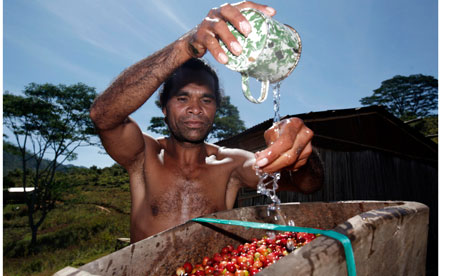Timor-Leste trials healthcare from the people, to the people
Timor-Leste gets creative at the grassroots level in battling a chronic shortage of healthcare professionals

A firm belief in community is helping medical experts in Timor-Lestedevelop strategies for fighting a chronic shortage of healthcare professions.
"The healthcare system is still grossly under-utilised. And where we really fall down is we're not doing enough to address prevention. If you look at the kinds of things people come to our clinic for, three-fourths of it could be prevented," said Dr Daniel Murphy, an American physician and the founder of Bairo Pite Clinic in Dili, one of Timor-Leste's most frequented health facilities.
"Things like all the contagious diseases, all the things they have a vaccine for, the things that could be prevented by improved hygiene, nutrition, water supply," he added.
Timor-Leste has a lack of trained health professionals staffing the country's 187 health posts, 65 community health centres and six hospitals, and a lot is riding on the influx of hundreds of Timorese medical students studying on scholarships in Cuba after a 2003 agreement between the two nations. The plan is to have one doctor per 1,000 of the population of 1.1 million. In the meantime, Cuba has sent hundreds of its own doctors to work in Timor-Leste.
Most of the country's health professionals left in 1999 at the end of a 24-year Indonesian military occupation that cost the lives of some 200,000 people. During Indonesian times, people sought primary healthcare from doctors, but the current shortage means many go to hospitals for basic treatment.
Eight years after formal independence and with one of the world's fastest-growing populations, Timor-Leste's health sector is strained, but Murphy isn't convinced the Cuban connection is the answer.
"People here have traditionally used other ways of addressing their illnesses and the western model of medicine plays only a small role," said Murphy. "A lot of resources will be spent on bringing these doctors back and putting them to work somewhere, but will that change the dynamic of disease in this country? Minimally."
Despite improvements in health indicators over the past decade, almost half of all children in Timor-Leste are undernourished, fewer than a third of babies are delivered by a trained health professional and 64 of every 1,000 children under five will die.
Murphy sees the solution in popular participation, giving grassroots groups a central role in planning and administration of health services.
Popular participation has been successful in other post-conflict countries, such as Nicaragua, where the ministry of health involved communities in everything from planning to budgetary decisions.
"It's empowerment of as many people as possible at the village level to have a say in what policies affect their lives," he said. "It has to come from the people themselves. They know what they think is important in their lives."
The government is already on board with the launch in 2008 of the ongoing Integrated Community Health Services (SISCa) programme, which seeks to deliver health services outside of facilities and closer to where people actually live.
Each of Timor-Leste's 442 villages has a SISCa post, and the aim is to have monthly activities, but with a lack of staffing, there is a long way to go.
With three-quarters of Timor-Leste's people living in rural areas, access to healthcare is one of the country's biggest problems, said Health Alliance International's Paul Vasconcelos, who works with the health ministry as a regional SISCa coordinator.
"The motto of SISCa is from the community, with the community, to the community. SISCa is yours, it belongs to you, so they organise it, the people will do everything. The health staff give assistance, but the community organises everything in the village levels," he said.
"In some villages it's very active. Village leaders know what's happening," Vasconcelos said.
Other health professionals in the country also stress the importance of popular participation.
Clinic Cafe Timor (CCT), the primary healthcare division of Cooperativa Cafe Timor, does its own community work. Teams from CCT do community consultations and map targeted communities to identify women and children requiring health services, and then provide local and home education, referral services and follow-up for 12 months.
"Some people just aren't aware of what is available or why it's even important to go and have their kids vaccinated, why it's important for antenatal care or to have a midwife attending their birth," said Kristen Graham, CCT's maternal and child health and family planning adviser.
"Linking the community to health services through local health workers is highly effective and improves healthcare coverage," she added.
Dr Rui de Araujo, Timor-Leste's health minister from 2001 to 2007, said popular participation will play a central role, but for now, there are some serious stumbling blocks.
Timor-Leste is still a post-conflict state. It has been formally independent since 2002, after emerging from about 500 years of colonialism.
"The mentality of participation in community affairs has a lot to do with historic and cultural issues in society," he said. "We can see people have the view that it is the state that should be responsible for people's health and when it comes to the definition of state, people think that the community is not a part of it."
This "colonial mindset", as Rui put it, could take as long as two generations to change. "Given the condition of Timor-Leste, it will take a long time before the community will stand up and be the active participants in the health of their community."
For now, state institutions should be the ones driving the main activities in health, he added. "In some districts there is low participation," he said.
"Our communities are not always formally educated, so that's why some understand, some don't. They see that the team is from the ministry of health so they think they are separate from them."
SOURCE: guardian.co.uk

No comments:
Post a Comment